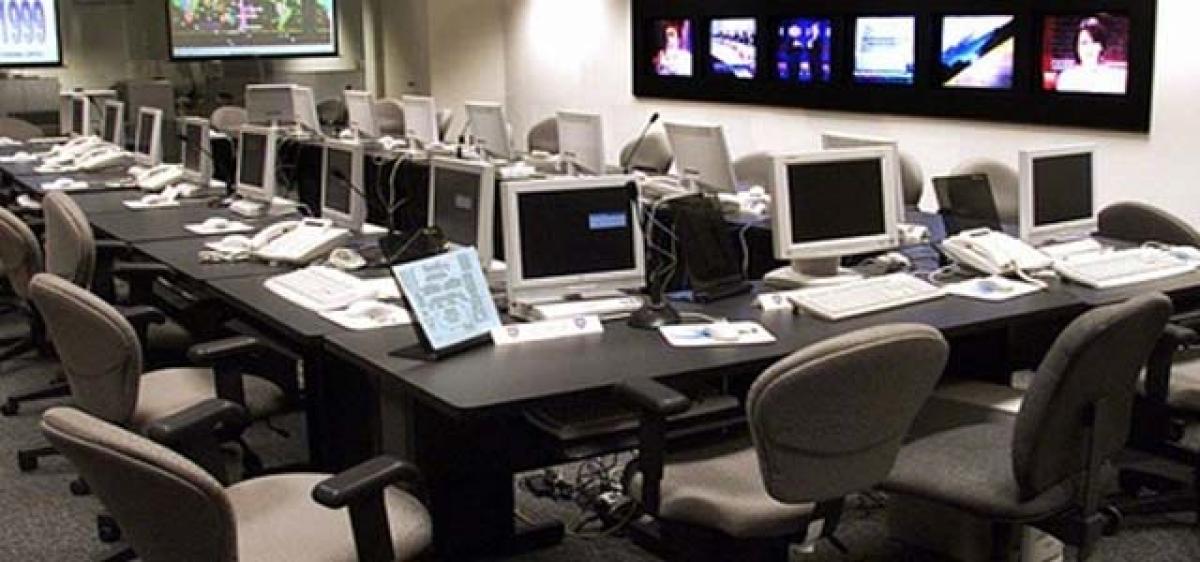Live
- Omar Abdullah Urges Congress To Earn INDIA Bloc Leadership Role
- Historic Temple In Sambhal Reopens After 46-Year Closure Following 1978 Riots
- Officials directed to work for deeper reach of guarantees
- Delay In 'One Nation, One Election' Bills Introduction Announced
- Exhilarating ‘Benchmark’ of Venkat Changavalli
- Development activities worth `30 cr launched in Puthalapattu constituency
- Allegations against KTR baseless: BRS leader
- Megastar Chiranjeevi to Visit Allu Arjun’s Residence at 12 PM Today
- Nilima Rane: Trailblazer in Nursing
- Casual yet stylish office outfits for all-day comfort
Just In

India’s information technology industry, currently valued at around Rs 10 lakh crore, is facing its biggest challenge these days. It hogged global limelight in late 1990s with its expert handling of the Y2K crisis and helped many US IT companies tide over that ‘nagging’ technical glitch before the turn of the century.
India’s information technology industry, currently valued at around Rs 10 lakh crore, is facing its biggest challenge these days. It hogged global limelight in late 1990s with its expert handling of the Y2K crisis and helped many US IT companies tide over that ‘nagging’ technical glitch before the turn of the century.
The sector has since come a long way, now employing over 25 lakh people in India. IT has changed the image of the country globally, helped it emerge a global power house for IT. Cities like Bengaluru and Hyderabad soon transformed into world-class metropolises.
The Indian IT industry largely owes its success to the US market and still gets over 60 per cent of its revenues from the North American country. Many Indian IT majors such as Infosys and Tata Consultancy Services (TCS) have large operations in the US.
The presence of Indian companies in the US increased manifold after the US government ushered in H1-B visa regime that allowed skilled people from other countries to work there on non-immigrant visas. However, things started turning against Indian IT companies and professionals in recent times after maverick Donald John Trump was voted to power as the US President. His main campaign plank was stopping outsourcing from the US and creating more jobs for the American citizens. The main casualty of his policies appears to be the H-1B visa programme.
Any restrictions on the popular H-1B visa programme will have adverse impact on the Indian companies as they will have to shell out more to hire Americans, thereby taking a significant hit on their bottom lines.
The other important dimension is that a major chunk of India’s youth is aspiring to become IT professionals as they get handsome pay packages and get to work in a world-class working environment.
With increasing automation in the industry and protectionist policies from the countries like US, it is very unlikely that this sector will be able to create a large number of new employment opportunities in the years to come.
Nasscom chairman C P Gurnani, who is also MD and CEO of IT major Tech Mahindra, reiterated the industry’s view on Thursday when he said during an informal media interaction in Hyderabad that there would be subdued hiring in the sector during the next financial year. Though he tried to play down the impact of Trump policies on the IT sector, industry insiders admit that there will definitely be some adverse impact in near future.
However, the future course of the high-profile IT sector depends on how it handles challenges posed by the Trump administration and its protectionist policies. There is also an increasing danger that the UK and other countries in Europe may follow the US and impose restrictions on Indian IT workers.
Though industry honchos underline the need for exploring new avenues such as Japan and China, it is not going to be an easy task given the language constraints and other issues. Therefore, it’s no exaggeration to say that the Indian IT sector is heading for tough times!

© 2024 Hyderabad Media House Limited/The Hans India. All rights reserved. Powered by hocalwire.com







